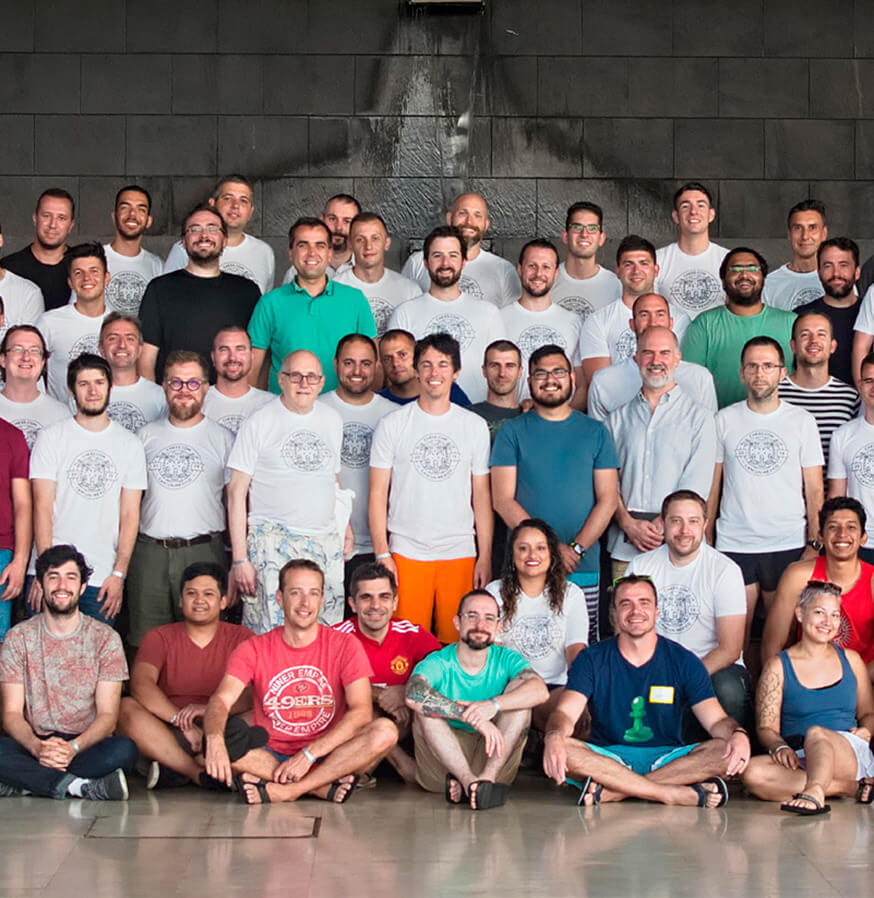In 2019, Chess.com implemented Rippling, a workforce management platform, to manage everything related to employees. Several Chess.com leaders were involved in the decision-making process, including the financial controller, the CEO, the CTO, and other technical leads to ensure it was the right fit. At the time, the platform was relatively new to the market and had piqued their interest because it addressed the team’s two primary business challenges: gaining a unified view of all team members and consolidating the operational components of managing that team into one place. The new platform’s account team also facilitated a seamless switch from its previous solution, and employees were able to understand the new system with ease.
01
A unified view of all team members
Creating a single source of truth for employee data was a key priority for Chess.com in choosing a solution. Previously, with contractors and employees tracked separately, having oversight into available headcount had been a challenge. The new platform immediately brought the entire workforce together and allowed for easier labor cost tracking, headcount reporting, and forecasting. From a finance and accounting perspective, automated reporting gave the team immediate visibility and actionable insights they could use in planning.
02
Automated tech provisioning at scale
With a diverse team of mixed employment types, Chess.com had somewhat complex provisioning. With its new solution, Chess.com could now automate software onboarding and offboarding based on specific employee criteria like level and job function, freeing up time for the DevOps team. The new platform connects to existing tools such as Slack and Github, and through predetermined rules that the team sets up, Chess.com can provision multiple tools, tailored for each team member with the appropriate access level, in one click. In addition, Rippling has helped decrease security risk associated with manual provisioning and deprovisioning.
03
HR oversight to align people processes
About six months after the initial rollout, Chess.com brought on its first HR hire, Brendan Woodroff, now VP of People. Woodroff has been a key stakeholder in overseeing the platform and expanding its use cases over the past four years. At initial implementation, the company was using HRIS functionality, US payroll and benefits, and tech provisioning. Since 2019, Chess.com has added a variety of new features and products as they have become available, including time and attendance, applicant tracking, expanded global payroll, and headcount planning—in addition to more advanced technology provisioning and reporting. Now, they are paying employees—both domestic and international—in one platform, no longer reconciling data across systems.
04
Minimizing friction to enable rapid growth
Since 2019, Chess.com has seen tremendous growth in its team and business, thanks to a huge boom in popularity in the game. Over the course of a year, Chess.com’s member base nearly doubled from 30 million to 57 million members; by the end of 2022, it had surpassed 100 million members. The company’s headcount has also more than tripled between 2019 and 2024.
“We have a team that we endeavor to reduce any possible friction around,” said Woodroff. Rippling has made employee processes simple for team members, from benefits enrollment and time off approvals to headcount planning.
05
Leaner teams with a strategic focus
Chess.com has reduced overall friction around a variety of internal processes—further supporting its rapid growth. The company still operates with a lean people team and no dedicated IT team, which are indicators of positive ROI of the platform. With just a two-person HR team, Woodroff and one recruiter, Chess.com hired over 200 senior technical roles in a single year. By streamlining and automating many components of hiring and onboarding, Woodroff’s team can focus on the strategic parts of recruiting like sourcing and closing top candidates with relevant technical expertise.
Today, the people team has eight people supporting over 700 team members and is able to remain focused on strategic initiatives such as people and leadership development that stays firmly rooted in Chess.com’s culture. They have taken the upfront time to set up rules and workflows in a system that scales, saving everyone time in the long run. They’ve automated reporting and now automatically add new hires to the right tools and groups based on their role and level.
[Rippling is] taking away the burden. It’s adding insight and visibility into some of the things that you often have to take on an administrative load to learn about and solve.
Brendan Woodroff
VP, People at Chess.com





































































































